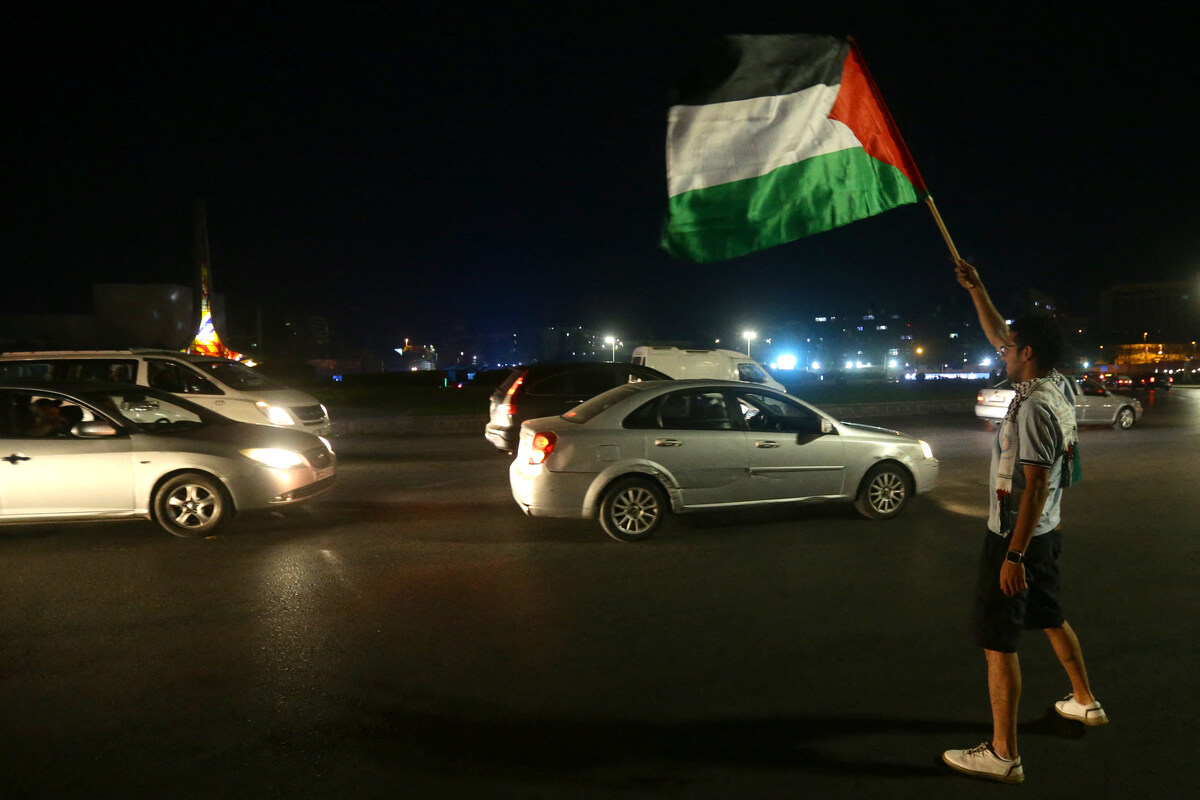
403
Sorry!!
Error! We're sorry, but the page you were looking for doesn't exist.
One year passes since "Al-Aqsa Flood"
(MENAFN) A year has passed since the "Al-Aqsa Flood," and the consequences of this significant event for Hamas, the Islamic Resistance Movement, and the Palestinian cause are becoming increasingly evident. The Israeli occupation had long aimed to establish a broad normalization initiative in the region, but this operation disrupted those ambitions.
The flood revitalized Hamas’s foundational mission as a resistance group, reaffirming its dedication to armed struggle as the main avenue for opposing the occupation. This renewed emphasis has resulted in military confrontations extending beyond Gaza and the West Bank, impacting neighboring regions including Lebanon, Yemen, Iraq, Iran, and adjacent maritime areas.
Although Hamas faced considerable setbacks in its military and organizational structures within Gaza, it has paradoxically gained support both domestically and internationally. The group has strengthened its relationships with nations and entities that oppose American dominance, enhancing its political stature in the process.
The Al-Aqsa Flood marked a crucial turning point, compelling a definitive choice between governance and resistance. The attempts to merge these approaches had stalled due to broad international rejection of the electoral results and ongoing Israeli pressure on Gaza. This pressure often involved using the humanitarian needs of Gazans as leverage to gain political concessions, overshadowing critical issues concerning the Palestinian cause.
Hamas capitalized on the resources and strength it had amassed during its governance of Gaza to deal significant blows to the Israeli occupation and deplete its military capabilities over the past year. This approach has led to an increase in resistance activities in the West Bank and heightened tensions on the northern front, where Hezbollah has entered an active conflict with Israel after a period of attrition.
Moreover, the Houthi group, known as Ansar Allah, has seized the opportunity to engage in the struggle by attempting to impose a naval blockade on Israel and pressuring its allies. Various Iraqi factions have also participated, albeit to a lesser extent, culminating in Iran's direct military involvement against the Israeli occupation.
The flood revitalized Hamas’s foundational mission as a resistance group, reaffirming its dedication to armed struggle as the main avenue for opposing the occupation. This renewed emphasis has resulted in military confrontations extending beyond Gaza and the West Bank, impacting neighboring regions including Lebanon, Yemen, Iraq, Iran, and adjacent maritime areas.
Although Hamas faced considerable setbacks in its military and organizational structures within Gaza, it has paradoxically gained support both domestically and internationally. The group has strengthened its relationships with nations and entities that oppose American dominance, enhancing its political stature in the process.
The Al-Aqsa Flood marked a crucial turning point, compelling a definitive choice between governance and resistance. The attempts to merge these approaches had stalled due to broad international rejection of the electoral results and ongoing Israeli pressure on Gaza. This pressure often involved using the humanitarian needs of Gazans as leverage to gain political concessions, overshadowing critical issues concerning the Palestinian cause.
Hamas capitalized on the resources and strength it had amassed during its governance of Gaza to deal significant blows to the Israeli occupation and deplete its military capabilities over the past year. This approach has led to an increase in resistance activities in the West Bank and heightened tensions on the northern front, where Hezbollah has entered an active conflict with Israel after a period of attrition.
Moreover, the Houthi group, known as Ansar Allah, has seized the opportunity to engage in the struggle by attempting to impose a naval blockade on Israel and pressuring its allies. Various Iraqi factions have also participated, albeit to a lesser extent, culminating in Iran's direct military involvement against the Israeli occupation.

Legal Disclaimer:
MENAFN provides the
information “as is” without warranty of any kind. We do not accept
any responsibility or liability for the accuracy, content, images,
videos, licenses, completeness, legality, or reliability of the information
contained in this article. If you have any complaints or copyright
issues related to this article, kindly contact the provider above.


















Comments
No comment